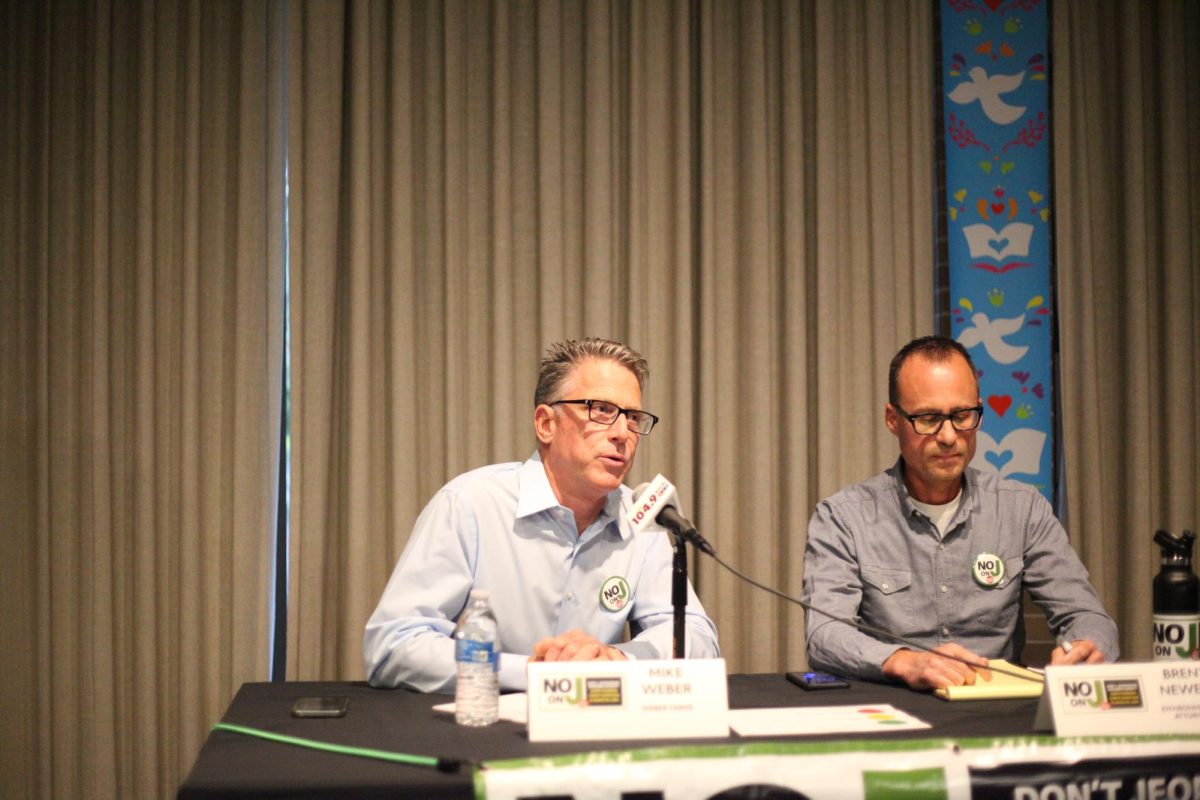A discussion related to the #MeToo movement is taking place in the acting community. It’s about how to keep actors safe from abuse and sexual violation while onstage. Some productions are beginning to use what has been dubbed ‘intimacy coaching’, and Sonoma State’s acting department is among this group.
Theater and film productions have long been using “fight choreography”–a technique in which actors’ movements are carefully planned in order to ensure safety during violent scenes. Intimacy coaching is similar choreography for scenes that may involve romance, sex, domestic violence, nudity, or anything related. “Woyzeck”, a German play by Georg Büchner being performed at Sonoma State, deals with many of these heavy topics. Director Paul Draper, professor of theater arts, has careful guidelines for how these types of scenes are conducted.
This is a process that focuses a great deal of attention on consent, and the lead actors in “Woyzeck” are grateful for it. “If we didn’t have someone taking each little thing and planning it, I know I might feel a little uncomfortable…you might not want to be touched in certain areas,” said Karina Pugh, the female lead.
Christopher Goodman, the male lead, agrees. “It’s really hard to be an actor and pretend that you’re being murdered by someone you care about, just as it’s really hard to be an actor and pretend that you’re murdering someone you care about. I think Carla has done a really excellent job of… keeping the actors safe,” Goodman said. Carla Pantoja, the fight choreographer for “Woyzeck”, has helped with intimacy training in the play.
First, actors are told before they are cast what types of scenes they will be in, and they have the opportunity to decide if they are comfortable with those scenes before consenting and accepting a role. According to Draper, just because they accept does not mean that they consent overall. In each scene they do what Draper calls “tapping in and out”, in which the two actors clap hands with each other and thus enter the scene, and do so again when the scene is over. In this way they are signaling their acknowledgment of the space they are in.
Another part of the process is that Draper has a third person, a fellow actor and student, operate as “deputy”. This is a person an actor can approach with any concerns they may have, who can serve as a liaison between the actor and director if for any reason the actor doesn’t feel comfortable approaching Draper directly.
“The intimacy training is really designed to empower the actors to let all the participants in a scene–whether you’re working on something romantic or sexual or violent–to say ‘I have rights here, I have to know what I’m being asked to do, and then I have the right to say yes I’m willing to try that, or can I try that in a different way?’”, Draper said.
Juliet Pokorny, production manager for the Center for Performing Arts at Sonoma State, described a case in which intimacy coaching was not used. “Killer Joe”, a 2010 play put on by Profile Theater in Buena Park, Calif., was reviewed for how realistic the sex and violence felt to the audience.
“They even commented in one of the reviews, ‘the bruises on her, as this man is beating her up, the bruises on her look real.’ And come to find out years later that she was literally being beaten up every night onstage,” Pokorny said. “You can say to yourself, ‘How is that possible’…With the whole #MeToo movement, how is it possible that this woman would let this happen?” The answer, according to Pokorny, is that she was young in her acting career, and she was just starting to become successful.
“This poor woman was literally being beaten up every night and didn’t know who to tell,” Pokorny said. “Because she’s finally “made it” in her career and what is she going to do now?”
The Chicago Reader delves deeper into the “Killer Joe” case. “‘It was real,’ says Darcy McGill, the costume designer, ‘because there was a psychopath onstage.’”
The “Killer Joe” case may be an extreme example of how things can go wrong, but there are more subtle ways that people can be made uncomfortable, without anyone else even knowing. Professor John Sullins, fight director, who is not working on Woyzeck, said, “A lot of times actors, especially female actors, are asked to play victims and I don’t think very much attention has been paid in the past about what it means for an actor to have to do that, and to have to do that regularly. That’s all a very new conversation.”
So new, in fact, that it was only in March of this year that Pokorny attended a conference for representatives from acting unions in San Francisco. There they discussed what this process could entail, and she brought these ideas back to Sonoma State. According to Draper, this isn’t something that he would have thought of 10 years ago because it simply wasn’t on most people’s radar at the time. However, as cases come to light, he and other members of production teams are becoming increasingly aware of how to address and prevent these types of situations.


































